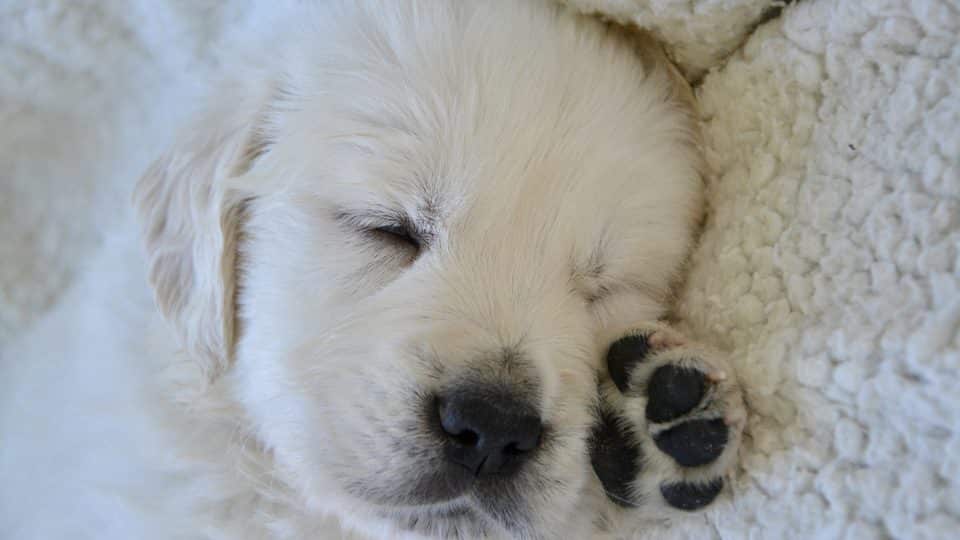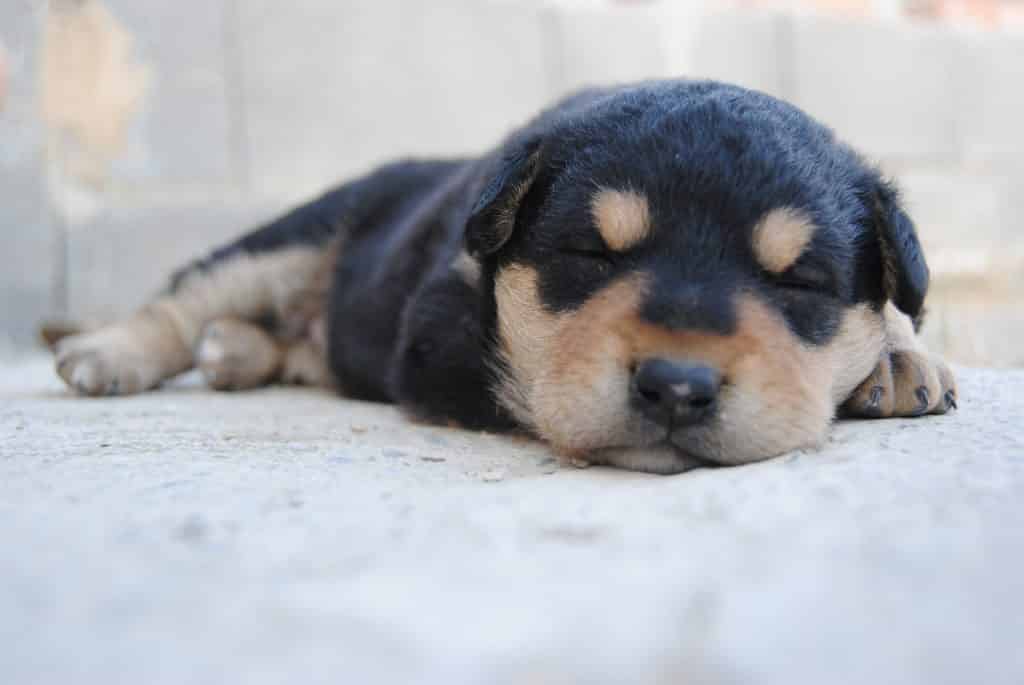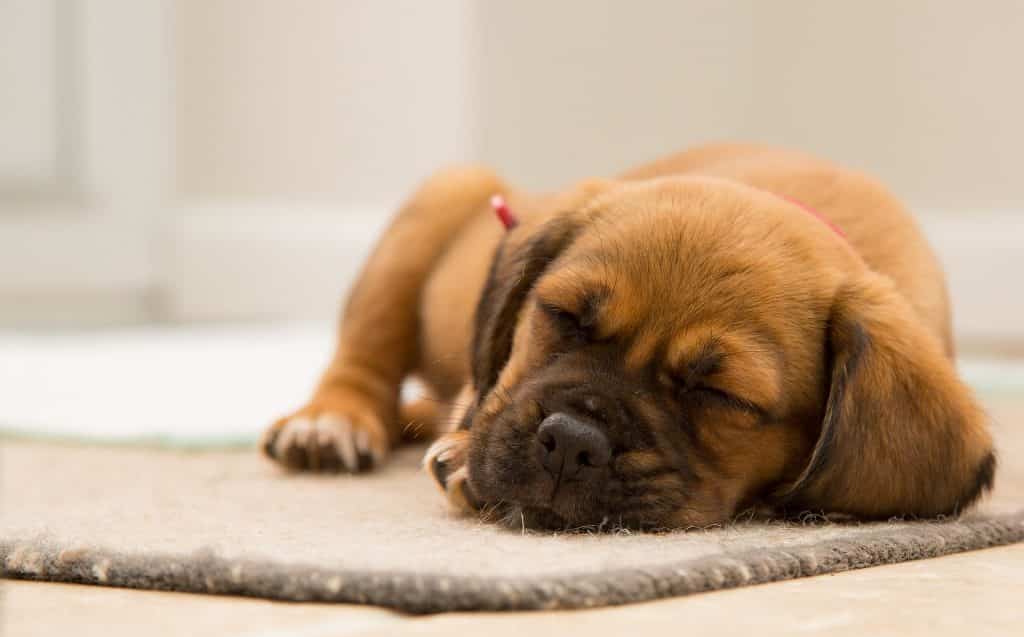- Not a substitute for professional veterinary help.
Getting a new puppy is, to many of us, as exciting and joyful as bringing home a new baby. We watch the puppy’s every move, reveling in this amazing little creature’s antics (and cuteness!), and are entranced with her even when she sleeps, her little legs twitching in her first doggie dream in her new home. But wait. She seems to be sleeping an awful lot – is that normal? Is your puppy sleeping too much?
If you’ve never had a dog before, or if it’s been a while (or never!) since you’ve had a puppy, it’s normal to wonder if we’re doing things right. We even worry about the big responsibility we have for this new member of the family, and what they need from us to live a full, happy life.
You expect the house training accidents, the chewing, and the crazy puppy playfulness and energy, but when it seems like he sleeps all the time, we wonder and worry.
Is it Possible for a Puppy to Sleep Too Much?
The short answer is no. You will see variations on the amount of sleep according to age and breed, and activity, but young puppies need about 18 to 20 hours of sleep a day. (Adult dogs typically sleep about 14 hours a day, as a comparison.)
That’s a lot of sleep! But when you stop and think about it, consider how much is going on – she’s literally growing a little bit every day, she’s learning new things every day, and she’s playing with her toys and with you. It’s exhausting! And just like all baby animals—including infants and small children—growing puppies need a lot of naps.
It takes a lot of energy to grow and to learn new things, and you want to be sure that along with exercise and play time, she’s getting plenty of downtime to sleep and rest.
Create a Sleep Routine
As with all babies, your new puppy with thrive on routine. You’ll notice that after a meal he may want to sleep for a while, or after a walk or game of fetch. It’s helpful to you and your puppy to get on a schedule for:
- mealtimes
- play times
- nap times
For example: after a rousing game of fetch, or chase or keep away, it’s time for a snack and a trip outside to potty, then a nap.
Crate training can be very helpful with routines, as the quiet of a crate and the comfort of his own space will let him know it’s time for sleep.
The bulk of your puppy’s daily 18-20 hours of sleep will, of course, be during the night, when we are sleeping, so it’s a good idea to not let her nap too long in the few hours before the time you normally retire to bed yourself. You don’t want to wind her up too much, nor overtire her, but be sure she’s not been sleeping so much that she’s wide awake and ready to PLAY when it’s time to go to bed for the evening.
Am I Worrying Over Nothing?
What if you go to wake him after a nap and he’s still sleeping? (Pro tip: let him sleep.) Or, what if you have a puppy like my last puppy, and she sleeps so deeply she doesn’t even wake up when her bladder is full and instead wets the bed. That can’t be right…can it? While it may not be typical for puppies to sleep that deeply, it’s not unheard of.
Probably the best indicator of normal behavior is how he behaves when he’s awake. Is he active and bright? Interested in his surroundings and engaged with you and other family members (including other canine or feline family members)? Is he a little bit mischievous, grabbing the sneaker you left by the door and running off with it? Yep, you have a normal, healthy puppy.
But if during normal wake periods you notice your puppy seems lethargic and sluggish, not wanting to move much, or otherwise dull and disinterested in his surroundings, this could be cause for concern. If he’s recently had a vaccine booster, he may be extra tired for about 24 hours afterward, but if that’s not the case, and he seems physically depressed during normal waking hours, call your veterinarian immediately.
Otherwise, as the old saying goes, let sleeping dogs lie, and enjoy the quiet time until your wee fanged tornado wakes up to start all over again. And then enjoy that time, too!






